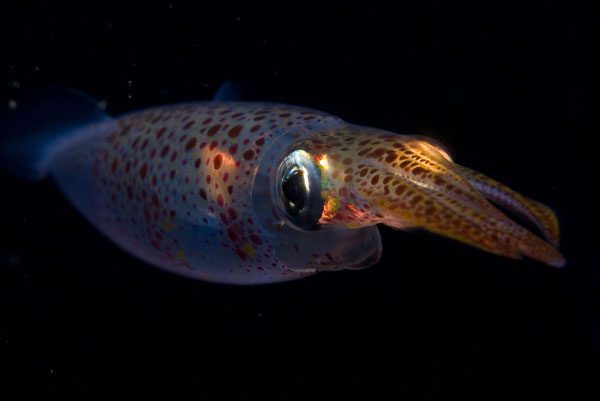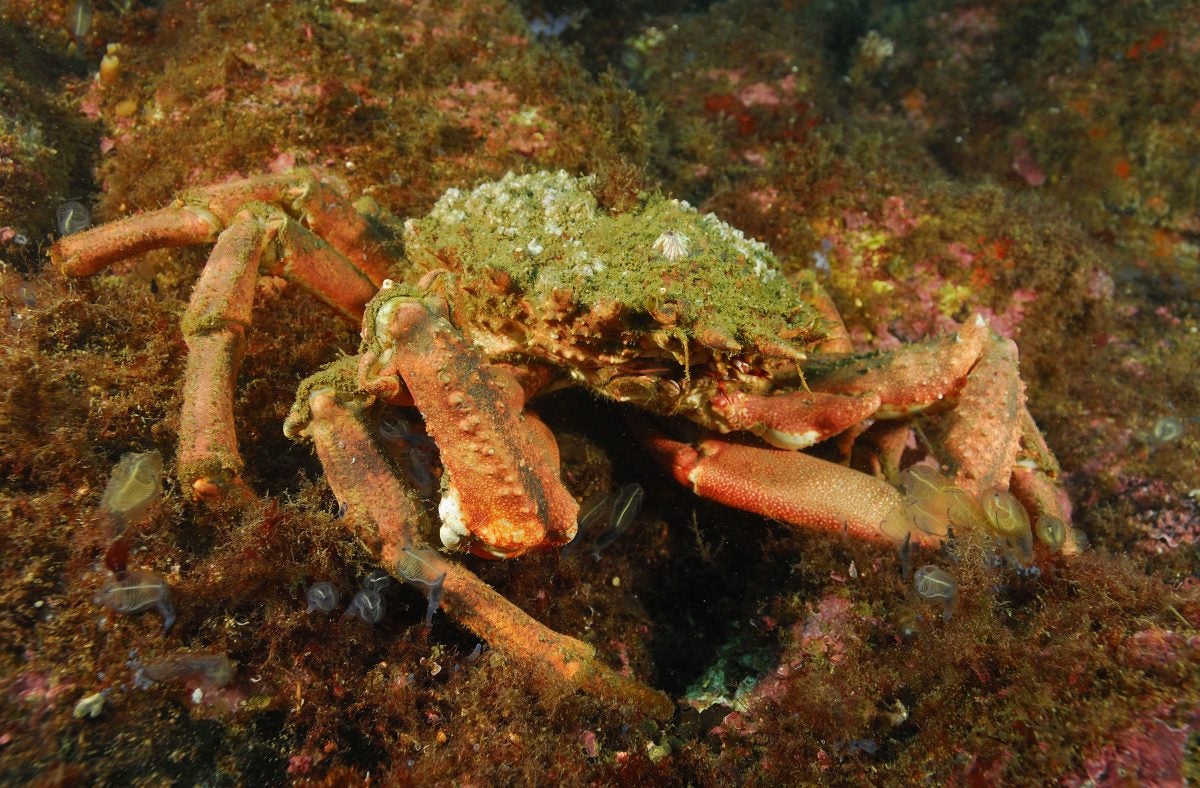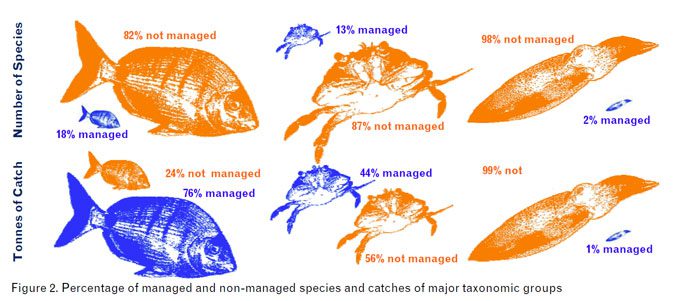Overview
 Managing fish stocks and ensuring they are maintained within sustainable levels is a binding obligation under EU Regulations and International agreements. And yet, 686 species (82% of total) are still exploited and commercialised by the EU fleet without sound management measures, and for most of them the stock status is unknown. In terms of volume, they represent a significant proportion (31%) of the EU fleet total captured volume and 36% of the total economic value of captures landed in EU ports.
Managing fish stocks and ensuring they are maintained within sustainable levels is a binding obligation under EU Regulations and International agreements. And yet, 686 species (82% of total) are still exploited and commercialised by the EU fleet without sound management measures, and for most of them the stock status is unknown. In terms of volume, they represent a significant proportion (31%) of the EU fleet total captured volume and 36% of the total economic value of captures landed in EU ports.
Examples of non-managed or partially managed species for which an improvement of management measures should be implemented, according to different criteria:
Vulnerability: red porgy, groupers, shads, squids, stony sea-urchin, sea-cucumbers
Catches: pilchard, anchovy, skipjack tuna, round sardinella, yellowfin tuna, great Atlantic scallop
Value: deepwater rose shrimp, red mullet, spottail mantis squillid, horned & musky octopuses, hake, common spiny lobster.
In order to attain overarching objectives for a sustainable and viable long term exploitation of fishing resources, a science-based management of all commercially exploited species should be considered the highest priority for decision makers.
- Oceana demands an increase the number of managed species through the progressive establishment of technical measures, effort restrictions and catch limits, based on a science and ecosystem approach. Criteria for selecting the managed species should not be restricted to the number of catches, but should take into account the value of species and their sensitivity to overexploitation.

- The current EU proposal for a new Common Fisheries Policy should include provisions guaranteeing that all commercial fish stocks are covered by management measures, particularly under multi-annual plans and/or TACs and quota systems.
- A major effort should be made in EU waters to increase the number of species managed through scientific based output controls, especially in the Mediterranean Region. For shared stocks, the EU must take the lead in ensuring the adoption of similar measures within the relevant RFMOs.
- A lack of scientific information should not mean a lack of management. The precautionary principle should be applied in all cases where full data is not available, through the setting of precautionary catch limits and other management measures.
- The EU must ensure that the European fleet conducts its activity under the same management conditions both in and outside EU waters.


